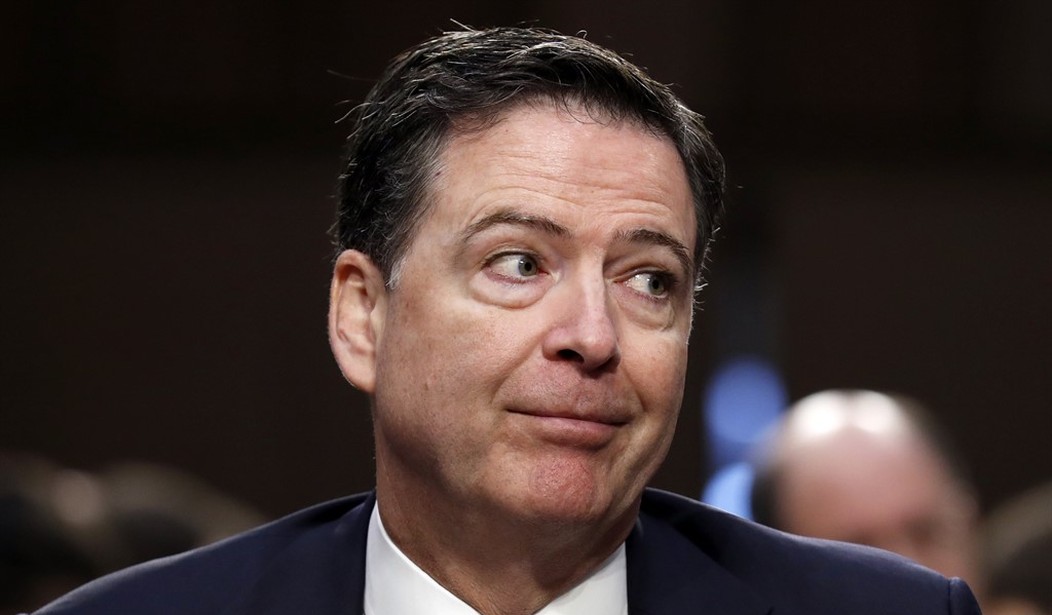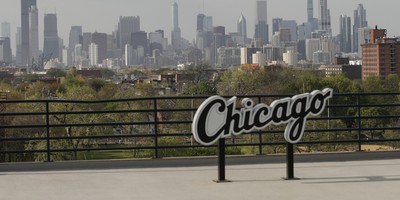This writer gambled on James Comey's integrity during the early days of the Clinton email investigation. I later regretted my conclusion.
I based my bet on his actions as assistant Attorney General under John Ashcroft, in the Bush Administration. One of the more notable events in that fabled story was a threatened mutiny by then Assistant AG Comey and then FBI Director Robert Mueller, the same Mueller now heading up the special prosecution of the Russia probe.
It is possible that the events that occurred in and around that legendary meeting may have served as motivation for Trump to outmaneuver Comey and fire him from afar, rather than risk being threatened with a revolt, only a short time after a mutiny by the disloyal Obama holdover Assistant AG Sally Yates.
Judging by recent events, and the earlier confusing Congressional testimony in which Comey described why there would be no prosecution of Hillary Clinton, it now appears that Comey’s actions are political in nature, and his actions are more reflective of political deceptiveness than personal heroism, which he so humbly downplayed Thursday.
Much of the questioning by the Republicans yesterday was extremely well directed, and gave well needed support to the President, and countered as best it could the partisan innuendo and blasphemous utterances from Senator Mark Warner, who really needed no witness of whom to ask questions, as he continued to level unsubstantiated accusations against Trump in his opening monologue.
Considering the pointed questions the Republicans asked, they failed to ask Comey why he felt that the President would lie, which might have undercut the veracity of Comey's testimony.
During the earlier Hillary Clinton Benghazi hearing, very capable Representative Trey Gowdy spent much time questioning Ms Clinton, yet failed to ask an important basic question.
Ms. Clinton had already admitted that she told different stories regarding the causes of the fatal Benghazi attack. She told her daughter and members of the Obama Administration that it was a terrorist attack. The American public was told that the event was triggered by a video, for which a man was subsequently imprisoned.
Recommended
The purpose of the deception was political in nature; to aide the Obama re-election campaign by eliminating anything that would detract from his image of being a successful anti-terrorist President.
Having the corroborated evidence before him, former prosecutor Gowdy never asked the one basic question that would have led to all the answers needed to unravel Benghazi and uncover the dirty political motivations, "Why did you lie?"
It is quite obvious that yesterday’s kangaroo court was also political theater, an attempt to bolster the Democrats’ chances of regaining control of Congress in 2018, this time by harming the reputation of a sitting President.
Thursday, Mr. Comey stated that he began taking notes of the meetings he had with Trump because of the particular situation and the content of the meetings, and the character of Mr. Trump. He somehow surmised that Mr. Trump might not tell the truth regarding the meeting they had. In other words, Mr. Trump might lie.
In answering question after question Mr. Comey stated that he couldn’t be sure of President Trump’s intentions or what Trump meant to imply in the several meetings and telephone conversations they had. Comey stated that what he surmised about the meetings was his own conclusion, and repeated several times that his conclusions could be wrong.
Yet, after all of these inferred, admittedly subjective conclusions, not one Republican asked Mr. Comey if the personal negative feelings he held about the character of President Trump, that the President was a liar, might serve to color his impression of the meetings, especially since there is no reported history of Trump ever having lied to Comey or to anyone Comey knows.
Mr. Comey stated that he was “asked” by AG Lynch to re-characterize the Clinton investigation as a “matter,” using Clinton’s term for the events. Unlike his description of Trump’s request to help him remove the Russian cloud hanging over him, Comey didn’t describe Lynch’s request as “being pressured.” Comey was not motivated to start a diary after that meeting with Lynch.
Mr. Comey’s answers were well crafted, with enough wiggle room and caveats to allow for a safe exit were he cornered. No Republican attempted to block his exit by asking how Comey determined that the President was a liar and if that determination colored his entire testimony before the Congress.

























Join the conversation as a VIP Member